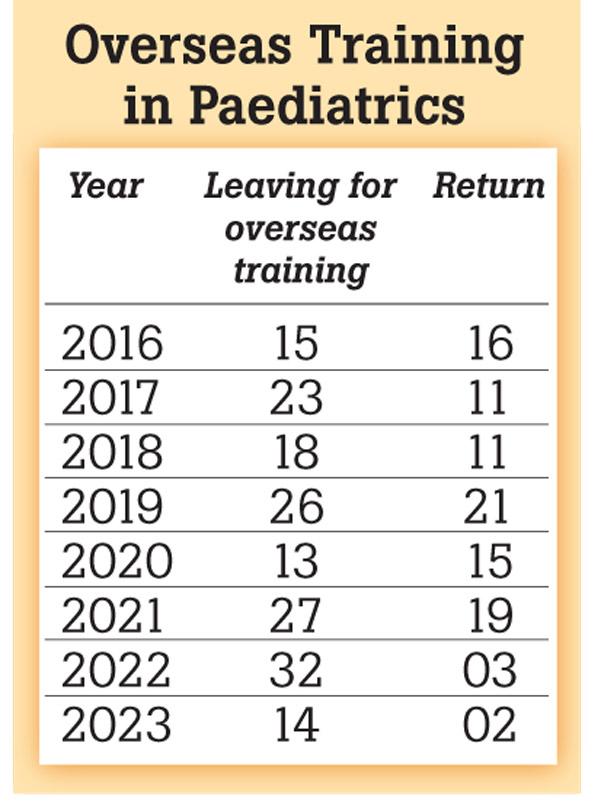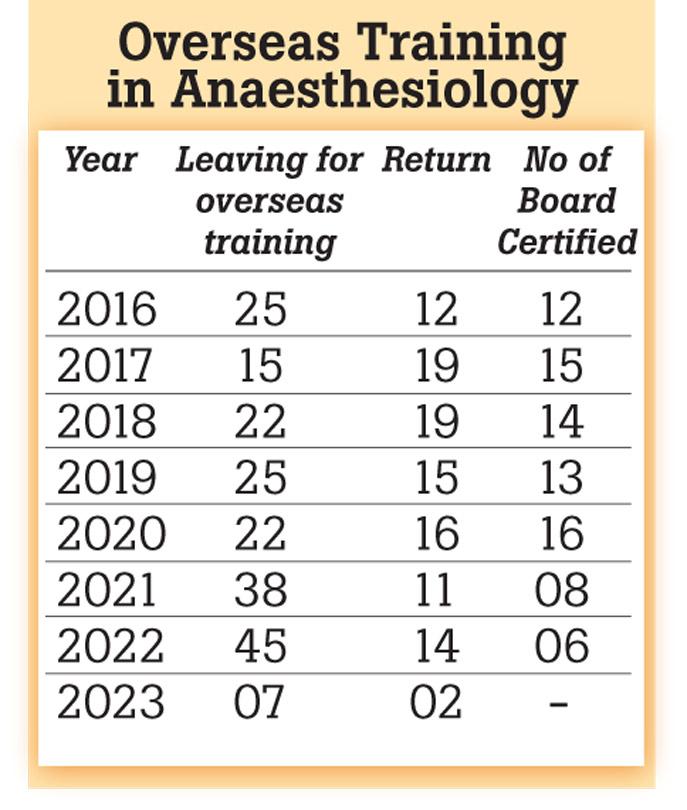Reply To:
Name - Reply Comment

Referring to the statement made by the Health Ministry Secretary that 700 doctors who are currently overseas will return within the next two years upon the completion of medical specialist training, a senior medical specialist said it is highly unlikely to witness such a phenomenon given the recent trend.
Speaking to Daily Mirror, the senior specialist said, “When comparing the recent trend of the number of doctors leaving and the number of doctors returning, there is a huge difference in the numbers,”
The specialist elaborated with examples that only 98 doctors out of 168 have returned to the country during the period from 2016 to 2023 in the field of pediatrics while 108 doctors out of 200 have returned to the country during the period from 2016 to 2023 in the field of anesthesiology.
Another case in point is that only three pediatricians out of 32 returned to the country in 2022.
Accordingly, it is evident that over 50 percent of those leaving the country are unlikely to return, shedding light on the risks faced by the health sector of Sri Lanka.
Meanwhile, according to the statistics from the Postgraduate Institute of Medicine, a total of 160 specialists have never returned to the country since 2016.
Addressing these concerns Health Secretary Janaka Sri Chandragupta told Daily Mirror that 700 doctors who are currently undergoing medical specialist training abroad will be returning to Sri Lanka over the next two years.
Chandragupta said a total of 300 doctors are set to come back this year, with the remaining 400 expected to return in 2024.
To address the potential shortage of specialist doctors in local hospitals, the Secretary revealed that plans are afoot to manage the situation effectively.
However, many experts agree that there is little possibility that large numbers of doctors who are currently overseas will return to the country as claimed by the Ministry Secretary.
Medical doctors in Sri Lanka have started to leave the country due to an array of factors, including low pay, higher taxes, limited career opportunities, poor working conditions, lack of resources, equipment, and staff in hospitals, political instability and insufficient protection for healthcare workers.
This can be seen as a blowing threat to the health sector leaving the general public to bear the brunt of it.

